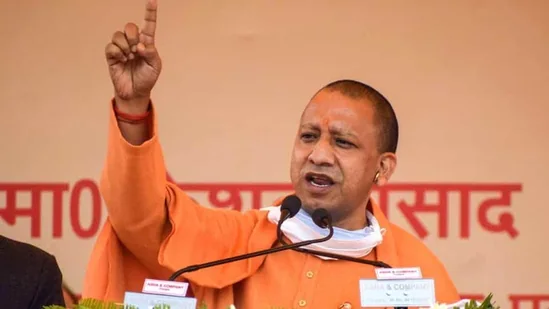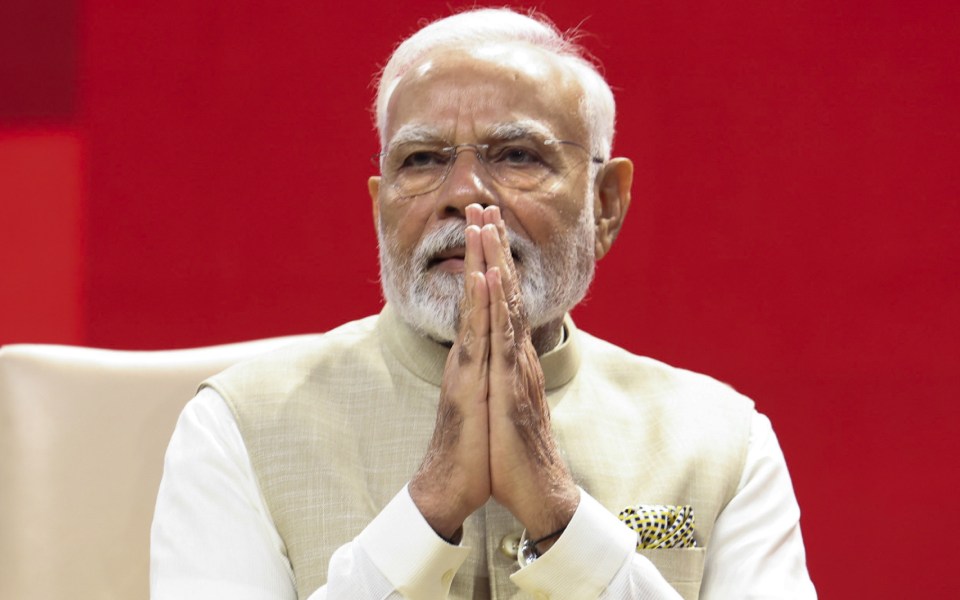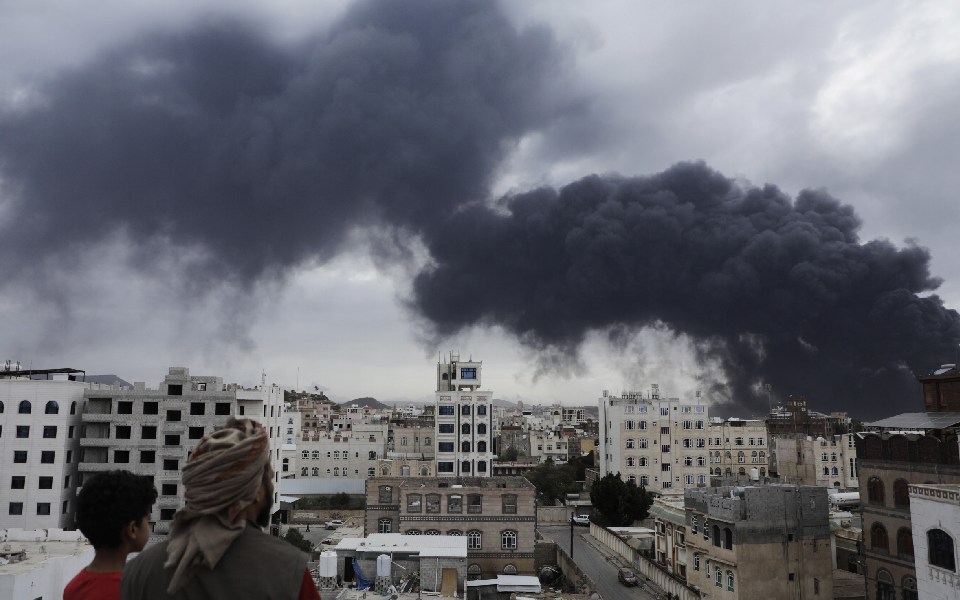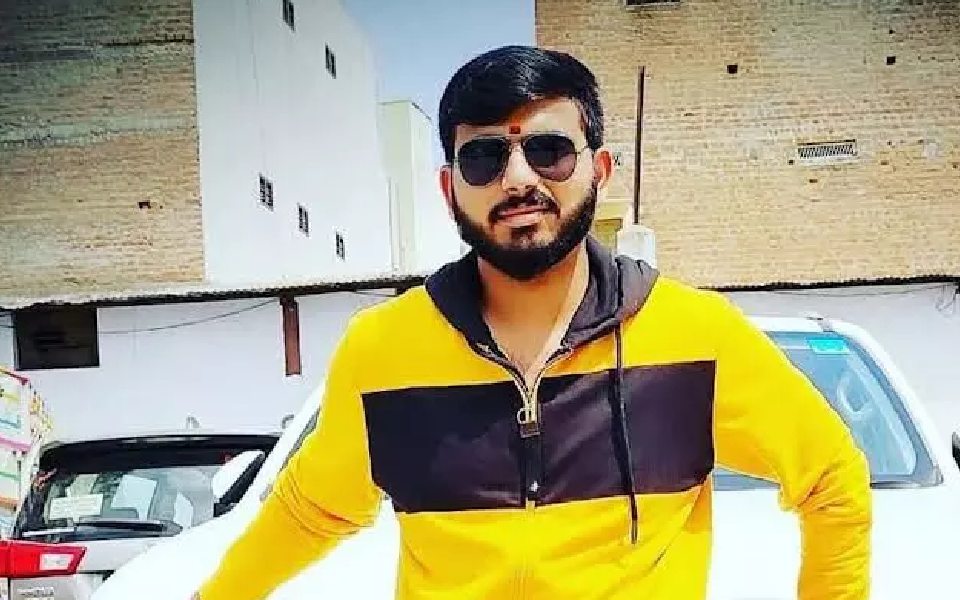Lucknow, Sep 21: The state government will bring a law for population control "at the right time", Uttar Pradesh Chief Minister Yogi Adityanath said on Tuesday.
The government had in July unveiled a policy aimed at stabilising the population in Uttar Pradesh and reducing maternal and infant deaths in a time-bound manner, with Adityanath terming rising population a "hurdle in development".
"Everything is done at an appropriate time. The media earlier used to question the BJP on when it would announce a date for the Ram temple's construction, but the prime minister (Narendra Modi), despite the COVID-19 pandemic, laid the foundation stone of the temple in Ayodhya on August 5 last year, and all need to be happy now," Adityanath said at a conclave.
"Similarly, Article 370 was also scrapped by the prime minister and Union Home Minister Amit Shah," he said.
On August 5, 2019, the Centre had abrogated Article 370, which gave special status to the erstwhile state of Jammu and Kashmir, and bifurcated it into union territories of Jammu and Kashmir, and Ladakh.
At the 'News 24' conclave, when asked about his recent 'abba jaan' remark, the chief minister said,"They (opposition) want the vote of Muslims but are getting irritated with 'abba jaan'."
In Kushinagar, Adityanath, in an apparent attack against the Samajwadi Party had said people who say "abba jaan" used to digest all the ration earlier.
On the population law for Uttar Pradesh, the chief minister said, "Everything has a right time and has to be done at the right place."
"When the population law is brought, it will be done with fanfare, in the knowledge of the media as we do not believe in doing anything silently," Adityanath said.
In July, a draft bill on population control was put up on the website of the Uttar Pradesh Law Commission, inviting suggestions from the public till the 19th of the month.
It states that people having more than two children in Uttar Pradesh will be debarred from contesting local bodies polls, applying for government jobs or receiving any kind of subsidy.
The draft bill also seeks to prohibit promotions in government jobs for such people, while offering incentives to those limiting their children to two.
The law commission is said to have handed over the draft bill to the government.
On Samajwadi Party (SP) president Akhilesh Yadav's tweet claiming that a record number of riots have taken place in the state, Adityanath said, "The National Crime Records Bureau (NCRB) states that there have been zero communal riots in Uttar Pradesh."
They (opposition) are not depending on their intelligence, but depending on Twitter, he said.
Asked about Yadav's assertions that he is inaugurating works done during the SP government, the chief minister said, "The situation that had emerged in 2017 of the pair (Congress and SP alliance for the elections) coming together, it is their nature to humiliate the state."
"The BJP is forming the next government with over 350 seats in the coming assembly elections," he said.
To a question on whether he would be chief minister again, Adityanath said, "If you say so I accept it. Thanks for your good wishes."
Polls for 403-member Uttar Pradesh assembly are due next year. The BJP had won 312 seats last time.
Let the Truth be known. If you read VB and like VB, please be a VB Supporter and Help us deliver the Truth to one and all.
New Delhi, May 6 (PTI): Prime Minister Narendra Modi affirmed on Tuesday that India's water will no longer flow outside the country but will be utilised in the nation's interest, remarks which were clearly aimed at Pakistan following his government’s decision to put the Indus Waters Treaty in abeyance after the Pahalgam terror attack.
Addressing the ABP Network's ‘India@2047’ Summit, Modi highlighted his government’s focus on interlinking of rivers, noting that water used to be a source of conflict among states, before hinting at India’s move against Pakistan as he cited ongoing discussion around water.
“Pahle Bharat ke haq ka pani bhi bahar ja raha tha. Ab Bharat ka pani Bharat ke haq mein bahega. Bharat ke haq mein rukega. Aur Bharat ke hee kaam aayega. (Earlier, the water which rightfully belonged to India was going outside the country. Now India's water will flow and stop in the country's interest, and will be used for India),” he said in Hindi as the audience cheered.
Modi, however, made no direct reference to Pakistan or any other comment on the rising tensions between the two countries following the terror strike that killed 26 civilians, mostly tourists.
Speaking about the finalisation of the India-UK free trade agreement, Modi said it is a historic day and this pact between two big and open market economies will mark a new chapter in the development of the two countries.
“This will boost economic activity in India and will open new ways and opportunities for Indian businesses and MSMEs,” he said, adding that it will help the youth.
The prime minister said India is not only carrying out reforms, but by actively engaging with the world, it is also making itself a vibrant trade and commerce hub.
“For taking big decisions and achieving objectives, it is important to give primacy to national interest and believe in the capability of the country,” he said.
The prime minister focused on the country’s growth and development under his government’s nearly 11 years of rule, saying it has served the poor and deprived sections of society while prioritising development as it has been solely driven by the interest of the country.
“We are moving from a GDP-centric approach to progress based on Gross Empowerment of People (GEP),” he said, citing a host of welfare schemes, including for housing and health insurance, for different sections of society.
His government has combined tradition with development and technology, he said, adding that if India tops in digital transactions, then it has also taken yoga and ayurveda to the world.
When people look at the country now, they can proudly say “democracy can deliver”, he said, adding that their trust was running low before his government took over as he slammed the previous regimes for being beholden to extraneous interests, including vote bank compulsions.
Referring to the new Waqf law, Modi said the need for the reforms was felt for decades but to satisfy a vote bank even this noble work was defamed.
“Now the amendments have been made which in the real sense will help poor Muslim mothers and sisters and poor Pasmanda Muslims,” he said, while also touching on his government’s decision to ban triple talaq.
It harmed innumerable Muslim women but was allowed to continue, he said.
In his address, he said the biggest dream of this changing India is to become ‘Viksit Bharat’ by 2047.
“The country has the capabilities, resources and the willpower for it,” he said.
“For decades, a counterstream prevailed in the country. There was a time when, before taking a big decision, it was thought - ‘what would the world think? Will we get votes or not? And decisions and big reforms languished due to such reasons,” Modi said, adding that a country does not move forward like this.
It advances when the basis of decisions is ‘Nation First’, he stressed.
In the last decade, India has moved forward with this mantra, and the results are there for all to see, he said.
“Our government has taken decisions which had been languishing and did not see the light of day due to a lack of political willpower,” he said.
Modi said direct benefit transfer weeded out 10 crore fake beneficiaries, saving Rs 3.5 lakh crore.
India, he noted, has begun doing well in sectors where it was not traditionally strong. He spoke about India’s rising defence exports, with over 100 countries being supplied with its defence products, and its emergence as an exporter of electronic products as well.





